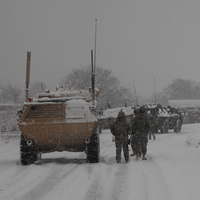The North Atlantic Treaty Organization (NATO) has been in trouble for much of its 60-year existence. Indeed, since the earliest days of the alliance, Americans have complained about burden sharing and important policymakers have issued dire predictions about the organization's imminent demise.
More recently, few thought NATO would survive the collapse of the Soviet Union, which it was created to contain. Yet, two decades later, the alliance is bigger than ever and engaged in the most significant military conflict in its history.
Still, many continue to believe that NATO is outmoded. Europe is largely without threat, they say, and the European Union, with a gross domestic product (GDP) 127 percent of that of the United States, could surely defend itself even were that not the case. Others argue that the future lies in Asia, not Europe, and that America's strategic focus should shift accordingly. Finally, many point to the war in Afghanistan as proof that there's little appetite in Western Europe to engage in any more "out of area" fights.

